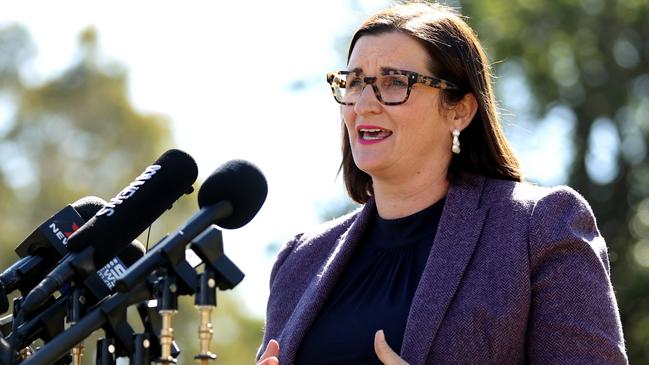How the teaching of English and maths will change from next year
From next year, teachers will be forced to use the most effective methods of teaching reading, in one of the biggest shake-ups of education in NSW in 30 years.
Education
Don't miss out on the headlines from Education. Followed categories will be added to My News.
Teachers will be required to use phonics when teaching children to read and students will “work at different Stages in different strands” under a new statewide curriculum to be used from next year.
Premier Dominic Perrottet said students in Kindergarten, Year 1 and Year 2 would be the first to benefit from the changes, with the first review of the state’s curriculum in 30 years released today.
The new English and mathematics curriculums will be used by students across 300 public schools from January next year, with the remaining schools across the state set to fully adopt it by 2023.
New syllabuses for older year levels will be progressively released from next year.

One of the biggest changes for Kindergarten students will be making phonics compulsory when learning to read.
Phonics involves matching the sounds of spoken English with individual letters or groups of letters rather than the whole of word approach which relies on students learning words by sight.
Education Minister Sarah Mitchell said there would also be an enhanced focus on handwriting in the earlier years.
The syllabus states students to work at different Stages in different strands.
“It is acknowledged that students develop at different rates and in different ways,” both the English and mathematics syllabuses state.
“For example, some students will achieve Stage 1 outcomes during Year 1, while the majority will achieve them by the end of Year 2.
“Other students might not develop the same knowledge, skills and understanding until Year 3 or later.”
A NESA spokeswoman said despite the syllabus saying children in different stages, she said it did not mean it was “untimed”.
“The syllabuses are not untimed. They clearly set out expectations for what is to be learnt by the end of Kindergarten and Stage 1 (Years 1 and 2),” she said. “Teachers may adjust teaching when students need to work above or below their stage, as has always been the case.”
Centre for Independent Studies education expert Glenn Fahey said removing objective outcomes could mean some students get to the latter years of primary school without ever reaching basic benchmarks. “In a practical sense it means children at the same classroom are encouraged to work at different stages,” Mr Fahey said.
“Ultimately it means students who start behind stay behind, teachers who could stretch a student to catch up to their peers are put in a situation where they don’t.”
While the syllabus acknowledges students develop at different rates, it lists the outcomes in mathematics for the end of Kindergarten as being able to count to 30 and the ability to tell the time to the hour on an analog clock.
In English, students must be exposed to classic and contemporary literature throughout one school year which include cultural and linguistic diversity, texts by indigenous peoples and picture books and Australian authors.




